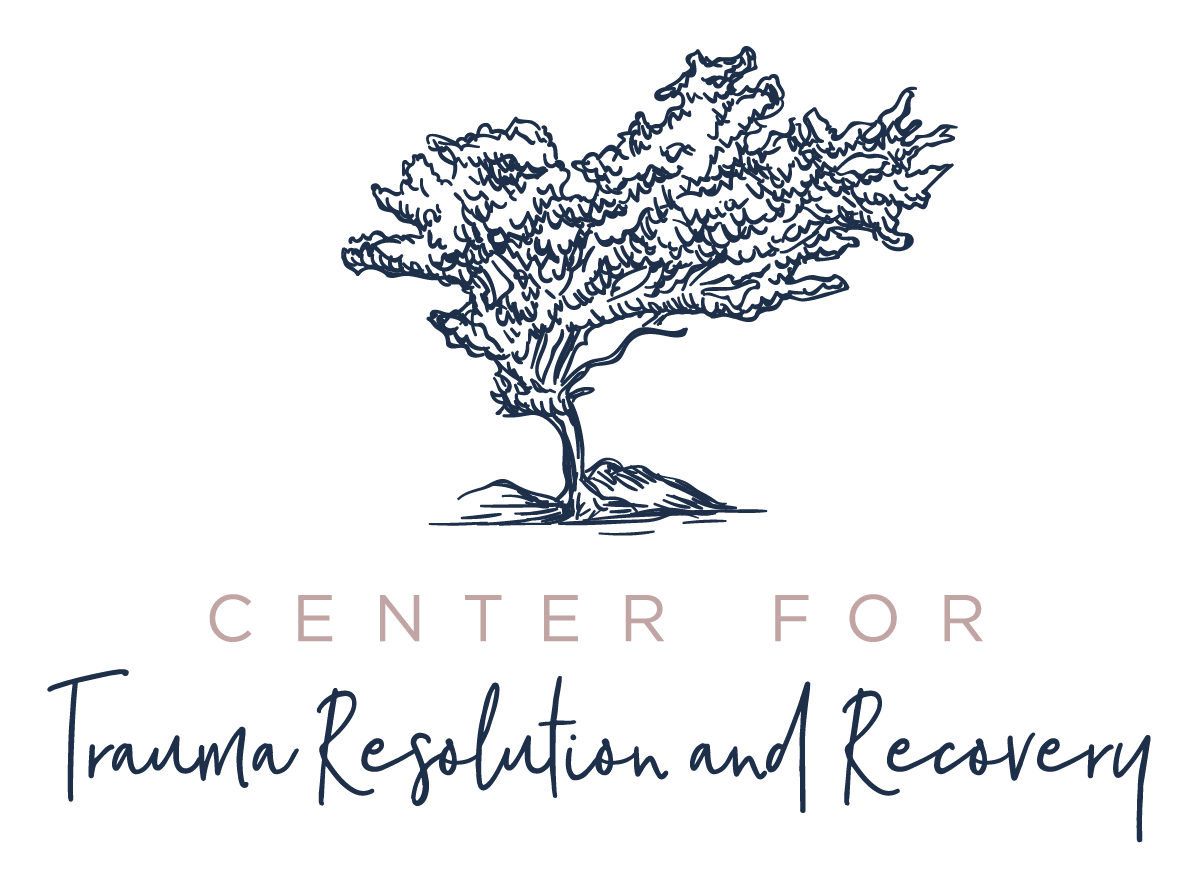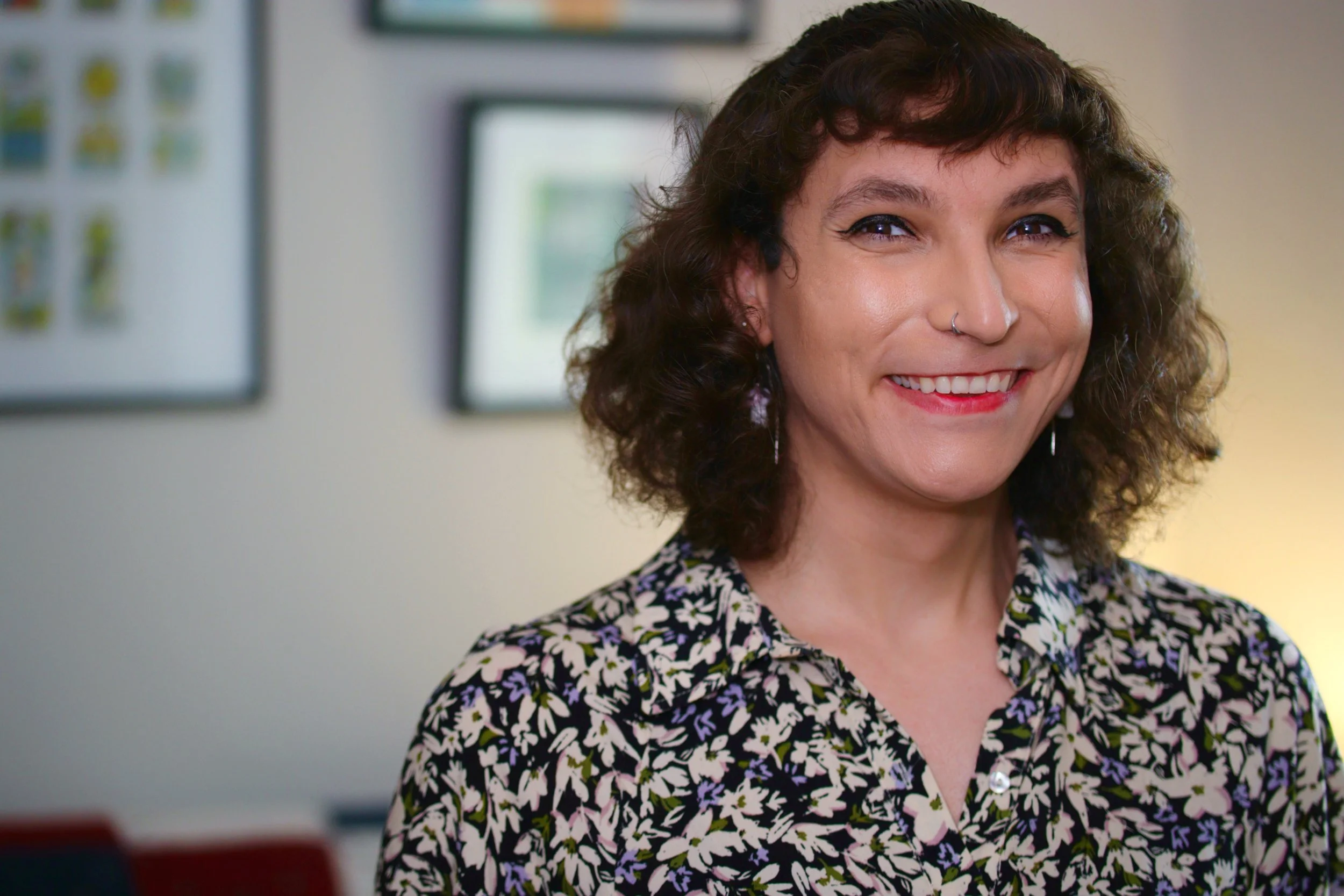Reconnecting with Your Body After Purity Culture
Written by CTRR Practitioner Willow Sipling
To learn more about working with Willow, click here.
With advanced degrees in theology, psychology, and Catholic studies, and as a certified trauma professional, Willow dedicates her work to supporting LGBTQ+ individuals, survivors of abuse, and those emerging from purity culture and conversion practices. Her approach blends humanistic and mindfulness coaching with deep compassion, creating safe spaces for healing and authentic connection.
Beginning Monday, September 15, 2025, Willow is offering a support group titled Reclaiming LGBTQ+ Identity After Non-Affirming Religious Experiences. This group will offer a safe space for LGBTQ+ people who are working on deconstructing and reconstructing their faith, spirituality, beliefs, and ethics in light of their queer identity. It is designed for those who may feel listless or uncertain about "where do I go from here?" after leaving high-control or coercive religious environments. Participants will find support in exploring their post-high-control LGBTQ+ identity, building new community norms and ethics, and navigating challenges such as loneliness, grief, and relationship styles outside traditional religious frameworks. Schedule a free inquiry call with her to learn more and register!
I want to start with a story that might sound familiar to many of us. Picture yourself sitting in church, listening to a sermon about keeping yourself "pure." You hear pastors or leaders obsessively talking about the addictiveness of porn, or the "stumbling blocks" of immodesty found at the beach or on social media. This sermon isn't just about delivering Bible verses, it's about prescribing a certain orthodoxy about people and their bodies. You learn to see yourself and others through a lens of perpetual suspicion, critique, and blame. Every curve, every smile that lingers a bit too long, every desire, every moment of physical pleasure becomes something that needs to be monitored, controlled, or reprimanded.
This wasn't just a sermon—you were receiving a masterclass in what Judith Butler calls "performativity" as it pertains to sex, gender, and relationships.
According to Butler, our embodied identities—our orientation, our self-expressions, where we fit into society—are often enacted to us or upon us, and then we "perform" these identities, becoming what our scriptwriters deliver to us. You might not be a temptress, but when a religious leader says wearing a bikini makes you a "Jezebel," a persona is formed in your mind. You begin to see yourself as a stranger, because even if you never intended to be "immodest," the boundaries created by purity culture make you take on foreign labels and see yourself in inauthentic ways.
Coercive control, seen in adverse religious experiences like being rebuked from a pulpit, reshapes our definitions, our identity, and even our sense of desire. But shame and forced self-alienation don't have to be the end of our story. The work of reconnecting with our bodies after these traumas can be a transformative journey, where we re-emerge as integrated and liberated people.
The Architecture of Purity Culture's Disembodiment
From the 90's "I Kissed Dating Goodbye" zeitgeist, to the Catholic Church's 2024 "Dignitas Infinita" which enforces a rigid and abusive understanding of masculinity, femininity, gender, and sex, religious institutions traffic in control over bodies—particularly targeting women and LGBTQ+ people.
Fortunately, by looking across history and different cultures, we can understand that those rigid rules are not inscribed in our DNA, but created through repetition and conditioning. If heteronormativity were truly embedded in immutable "natural law," why would it require such constant, loudmouthed reinforcement?
Recognizing purity culture's fragility offers us profound relief—seeing the cracks in the system means there's something on the other side once we break through. You can ask, "Am I inherently sinful, or is that a lie that a preacher told me?" Or, you might say, "If all of these prohibitions were just to keep men in power, then maybe the universe won't be offended if I seek pleasure 'out of wedlock.'"
Every time you were told that your body was an "occasion of sin," that your attractions were "intrinsically disordered," that you were "used goods," or that you didn't dress "manly" or "feminine" enough—what if you could see all of those messages not as evidence of brokenness, but as performances of control by institutions whose power is slipping away?
Purity culture institutions target your body as a place of control because they understand the power of somatic experiences and sexuality. That's why it's important not only to deconstruct these oppressive ideologies, but to reconstruct resilient, helpful, and safe beliefs and practices to replace them. Purity culture "works" when it disembodies people; when you reinhabit yourself in the fullness of your identity, this re-embodying detracts from the power that purity culture sought to take from you.
Reconnecting With Your Body
Because purity culture is fundamentally unjust and coercive, I approach it from a trauma-informed, intersectional, and liberatory perspective. These frameworks help us identify our needs and build the right toolbox for recovery and reconnection.
First, reconnecting with your body requires understanding trauma as both individual and systemic. Religious trauma shouldn't be treated as individual pathology, but as institutional violence. Putting all the responsibility on survivors is unhelpful, even when well-meaning responses focus on building individual resilience. This approach isn't wrong, but it's incomplete.
A trauma-informed, intersectional, and liberatory approach honors the role of shame and blame in a survivor's journey. Dissociation, hyperarousal, dysmorphia and dysphoria, and other symptoms should not be viewed as character defects or problems to solve. Hypervigilance to physical sensation, inability to access pleasure, and constant behavioral monitoring make sense as adaptations for systems that required bodily surveillance for community membership.
Understanding trauma response this way allows us to see that these adaptations are not inherently dysfunctional—survivors can learn to transform hypervigilance into conscientiousness, or physical hyperawareness into something sexually fulfilling in intimate encounters.
The journey from disembodiment isn't just about "loving your body" or "embracing your sexuality," though these things may be part of it. True liberation involves learning to be present in our bodies as they are, not as we're told they should be. Liberation means not only saying "no" to purity culture, but also avoiding the trap of performative rebellion. Hypersexuality and compulsive sexuality can be harmful, too, so it's important to be present in our bodies as we make physical and sexual decisions. If having a "slut phase" is part of your healing journey, that's great! But do this for yourself, not to “perform” your escape from purity culture for others.
How do we know we're acting authentically rather than performing for others? A helpful question—one I learned through Ignatian spiritual direction—is "if no one else knew I did this thing, would I still do it?" This non-judgmental curiosity drives us towards authenticity. Building this practice of curiosity benefits all aspects of our post-purity culture lives, not only regarding bodies and sexualities. Many of us develop fawning defense mechanisms, becoming trained to be doormats for others. Non-judgmental curiosity might ask, "am I complying out of habit, or is this really something I want?" Curiosity leads to authentic assertiveness and honors your body's intelligence and wisdom—voices that weren't previously allowed.
I believe it's crucial to understand that sexual healing is spiritual healing. As queer theologian Marcella Althaus-Reid wrote, all theology is sexual theology. Spirituality reaches the deepest parts of our being: our sexual identity, sexual orientation, gender, and gender identity. We don't have to believe in Christianity, God, or anything supernatural to be spiritual. "Spirituality," in this sense, encompasses what we embrace when we find our worthiness, our sense of belonging in community, and our place in the cosmos. Sexuality matters here because many of us couldn't fully experience the world, relationships, or ourselves because sexuality was compartmentalized. We couldn't experience the world with our full selves.
This doesn't mean having sex is required to be a whole person—that's compulsive sexuality talking. Stepping into fully-healed and integrated sexuality means understanding how to engage in the world as an embodied creature, with no part of ourselves on hold. That might mean approaching relationships with a deeper sense of what it means to be drawn to others, instead of assuming attraction equals lust that would displease God. We can explore our connections to others with openness—we might abandon relationship hierarchies altogether, try casual dating apps, or discover that we identify as asexual, and decide—from a place of freedom rather than prohibition—that a platonic romantic relationship is the best fit.
Finally, reconnecting with ourselves happens in community. This doesn't necessarily mean having a partner or intimate involvement with particular people. Rather, we need to engage with others as co-learners, not as isolated masters of our own destiny. Coming out of purity culture means having our assumptions challenged and our internal homophobia or patriarchy confronted. Purity culture emerges from Western Enlightenment values, where hyperindividualism and consumerism thrive. A liberatory approach involves co-regulation, accompaniment, and accountable autonomy. Fragmentation and atomization won't liberate our bodies—strong, loving community will support and sustain us in our healing journey.
For those seeking re-embodiment, I recommend embracing curiosity, integration, and growth within liberation-focused community.
Recommended Resources:
Truth and Repair: How Trauma Survivors Envision Justice by Judith Lewis Herman
Who's Afraid of Gender by Judith Butler
Indecent Theology by Marcella Althaus-Reid
Anxiously Attached by Jessica Baum
Holy Hurt: Understanding Spiritual Trauma and the Process of Healing by Hillary L. McBride
With advanced degrees in theology, psychology, and Catholic studies, and as a certified trauma professional, Willow dedicates her work to supporting LGBTQ+ individuals, survivors of abuse, and those emerging from purity culture and conversion practices. Her approach blends humanistic and mindfulness coaching with deep compassion, creating safe spaces for healing and authentic connection.
Beginning Monday, September 15, 2025, Willow is offering a support group titled Reclaiming LGBTQ+ Identity After Non-Affirming Religious Experiences. This group will offer a safe space for LGBTQ+ people who are working on deconstructing and reconstructing their faith, spirituality, beliefs, and ethics in light of their queer identity. It is designed for those who may feel listless or uncertain about "where do I go from here?" after leaving high-control or coercive religious environments. Participants will find support in exploring their post-high-control LGBTQ+ identity, building new community norms and ethics, and navigating challenges such as loneliness, grief, and relationship styles outside traditional religious frameworks. Schedule a free inquiry call with her to learn more and register!

